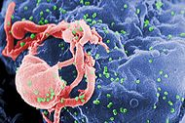-
About
- About Listly
- Community & Support
- Howto
- Chrome Extension
- Bookmarklet
- WordPress Plugin
- Listly Premium
- Privacy
- Terms
- DMCA Copyright
- © 2010-2025 Boomy Labs

 Melissa Steele
Melissa Steele
Listly by Melissa Steele
A health crisis or public health crisis is a difficult situation or complex health system that affects humans in one or more geographic areas. Here are 5 that will continue to shake and rattle this world for decades to come.
Source: http://mphprogramslist.com/

Human immunodeficiency virus (HIV) is a lentivirus (a member of the retrovirus family) that causes acquired immunodeficiency syndrome (AIDS),[1][2] a condition in humans in which progressive failure of the immune system allows life-threatening opportunistic infections and cancers to thrive.

Obesity is a medical condition in which excess body fat has accumulated to the extent that it may have an adverse effect on health, leading to reduced life expectancy and/or increased health problems.[1][2]Body mass index (BMI), a measurement which compares weight and height, defines people as overweight (pre-obese) if their BMI is between 25 and 30 kg/m2, and obese when it is greater than 30 kg/m2.[3]

Breast cancer (malignant breast neoplasm) is a type of cancer originating from breast tissue, most commonly from the inner lining of milk ducts or the lobules that supply the ducts with milk.[1] Cancers originating from ducts are known as ductal carcinomas; those originating from lobules are known as lobular carcinomas. Breast cancer is a disease of humans and other mammals; while the overwhelming majority of cases in humans are women, male breast cancer also exists.[2]

Smoking is a practice in which a substance, most commonly tobacco or cannabis, is burned and the smoke is tasted or inhaled. This is primarily practised as a route of administration for recreational drug use, as combustion releases the active substances in drugs such as nicotine and makes them available for absorption through the lungs. It can also be done as a part of rituals, to induce trances and spiritual enlightenment.

Pharmacovigilance (abbreviated PV or PhV) is the pharmacological science relating to the detection, assessment, understanding and prevention of adverse effects, particularly long term and short term side effects of medicines.[1] Generally speaking, pharmacovigilance is the science of collecting, monitoring, researching, assessing and evaluating information from healthcare providers and patients on the adverse effects of medications, biological products, herbalism and traditional medicines with a view to:
